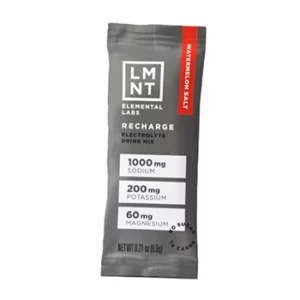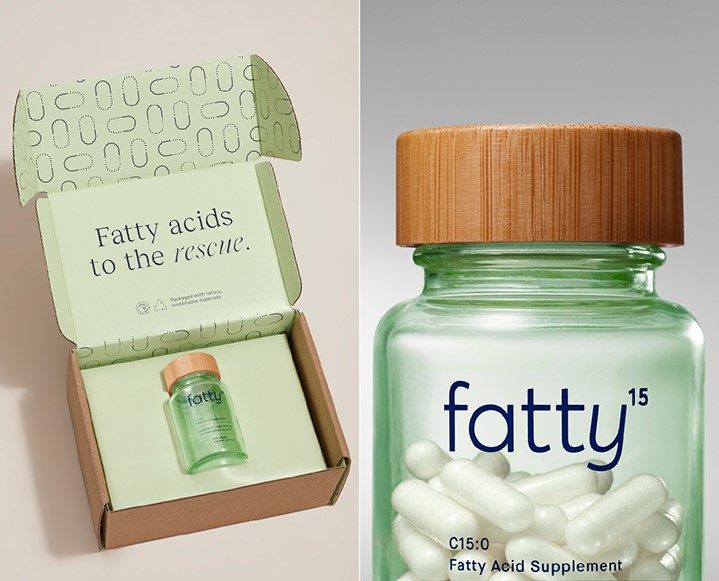No, you’re not crazy – that sudden weight gain, mysterious moodiness or inexplicable fatigue is happening for a reason. A hormonal imbalance can wreak havoc on our sense of wellbeing, and what we’re eating is often to blame.
Certain foods notoriously throw our systems into a chemical tizzy, which can cause total mind-body mayhem that leaves us feeling helpless, confused and generally unwell. To make sense of the madness, we’re turning to holistic nutritionist, Kelly LeVeque, and learning about four foods that can instigate hormonal imbalance, what those symptoms look like and what we can do to help ourselves!
Your hormones are affected not only by how you sleep and your stress levels, but they are also highly responsive to what you eat. Food does more than just provide energy and dictate body composition; it sets off a cascade of hormonal changes that can include increased insulin, increased cortisol, increased estrogen, decreased testosterone and decreased dopamine. Here are four foods that often contribute to hormonal imbalance…
Liquid Sugar.
Sugar-loaded beverages like soda and your favorite mimosas are all examples of fast sugar that will send your blood sugar on a roller coaster and leave you hormonally hungry with increased cravings later. When your blood sugar rises after drinking a sugary drink, insulin is released to allow your cells to take in blood sugar for energy or storage and prevents fat cells from being broken down. If the blood-sugar spikes are fast and high, excess insulin may drive blood sugar down quickly and your body may enter a state of hypoglycemia, or very low blood sugar. At which point your body will then release cortisol. Your liver will respond and release the hormone glucagon, which works to raise blood sugar. Cortisol is the issue here; when we are producing too much cortisol it steals the precursors for making sex hormones like estrogen and progesterone, this is called the “cortisol steal.” Not only will this roller coaster offset your hormones and leave you feeling fatigued and low, it might interfere with your sex hormones too! So think twice before downing that excessively sugary beverage.
Soy-Derived Phytoestrogens.
Phytoestrogens are plant compounds found in soy foods that can mimic the effects of estrogen and activate estrogen receptors in the body. What does this mean for your hormones? Hormone imbalances can lead to fatigue, weight gain and mood swings. Phytoestrogens can have the same effect on your body by interfering with your libido and menstrual cycle. Phytoestrogens can even make your face breakout – these hormonal blemishes occur around the mouth and jaw line. Also, one of the associated risks for the consumption of excess soy is hypothyroid. Not only is this a concern for women, but men also experience loss in sperm count, and if the intake is excessive, men can begin to produce prolactin – that’s right, they can actually produce the hormone that produces breast milk for women because of the phytoestrogen presence in their body. Foods that contain the highest amounts of phytoestrogens include soybeans and soy products, tempeh, flaxseed, oats and lentils respectively. It’s important to emphasize that while research on the topic is inconclusive, and that there may be positive benefits, understanding that phytoestrogens may harm your hormones is reason enough to consume with caution or simply avoid them.
High-Glycemic Foods.
Foods high on the glycemic index like bread, pasta and dried fruit can lead to insulin resistance, and cause you to overeat and gain weight. The same roller coaster that you experience when you drink sweet drinks can happen with sugar-rich foods like white breads, cookies and cakes – but the increased insulin and decreased dopamine are the real culprits to weight gain and addiction. Eating these foods can cause insulin, the storage hormone to last six to eight hours in your blood stream, leading to cravings, weight gain and hormonal hunger. More importantly, when you eat these foods, large amounts of dopamine (reward neurotransmitter) are released in the brain; after awhile the receptors to dopamine in your brain down-regulate and you need more of the same foods to feel happy. This reaction is what causes these types of food to be very addictive. These foods also tend to be high in omega 6 oils – like safflower, sunflower, corn and cottonseed oils – which can throw off the omega-3-to-6 ratio in your body, leading to inflammation and elevated cortisol levels. Eating a balanced diet of protein, fat and fiber (my “Fab Four”) is the fastest and most efficient way to balance blood sugar, keeping your hormones in check and allowing you to feel energetic through the day and relaxed around food.
Industrial Seed Oils.
Industrial seed oils such as canola, corn, cottonseed, soybean, vegetable, safflower and sunflower oils oxidize, which causes inflammation. News flash: Ever wonder why your stomach may hurt after eating fast food or out at a restaurant? More often than not, restaurants use seed oils or worse, hydrogenated oils (trans fats) to cook their food, which leaves you bloated, fatigued and full of high blood sugar. A good general rule is to avoid fried foods and check food labels.















